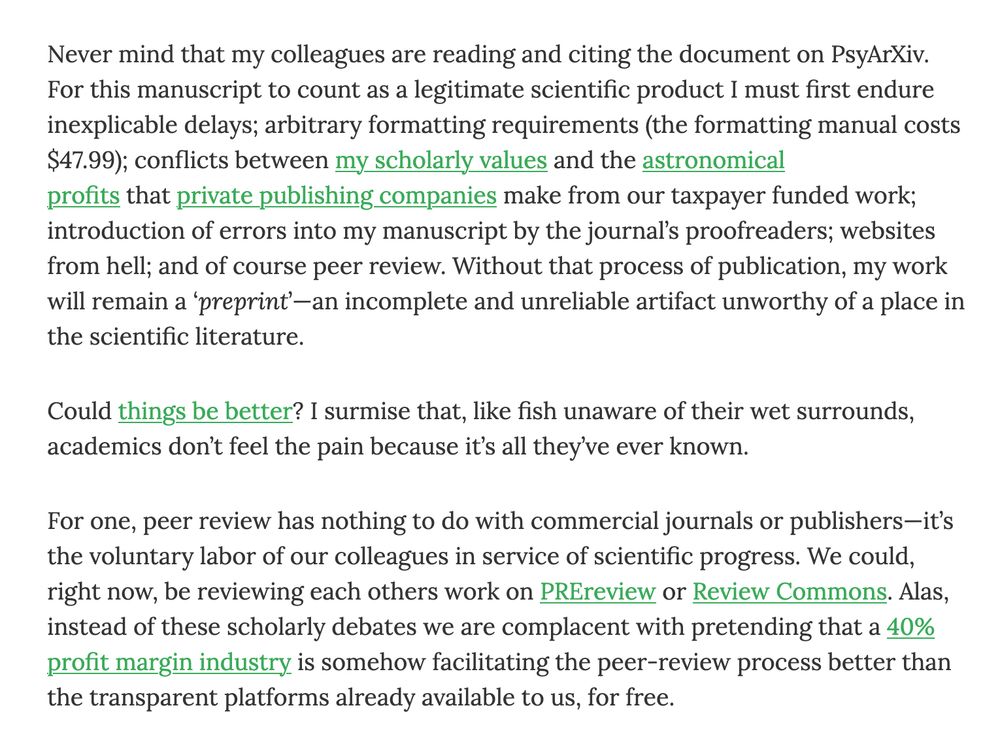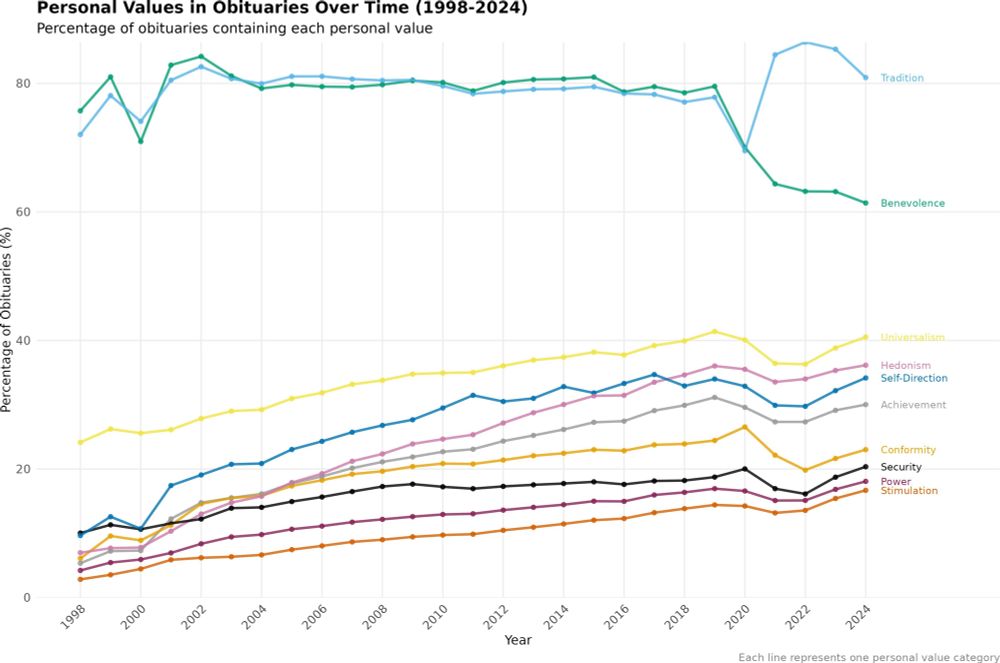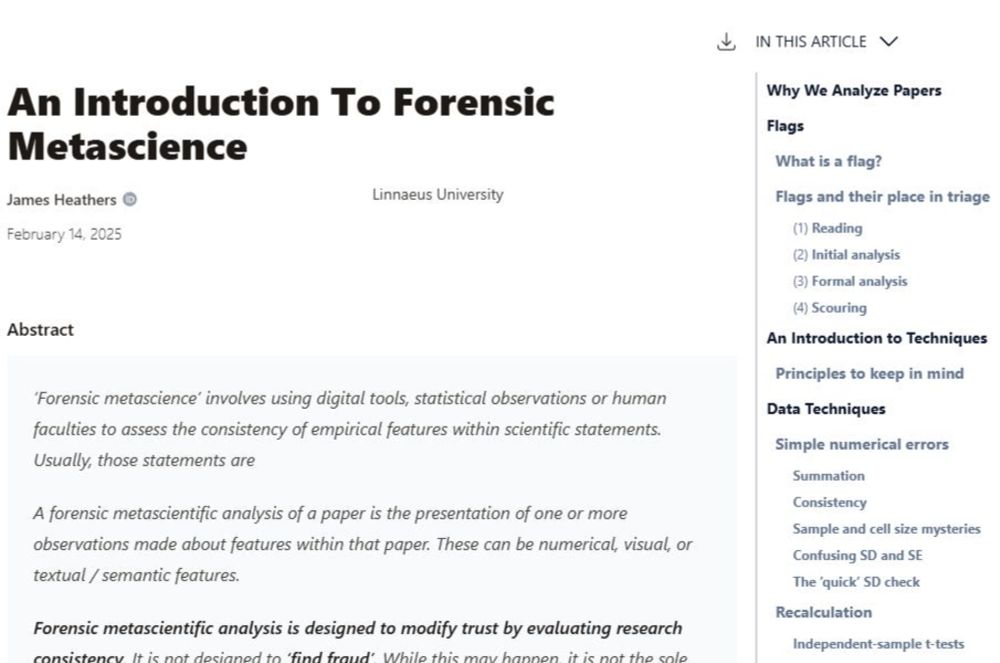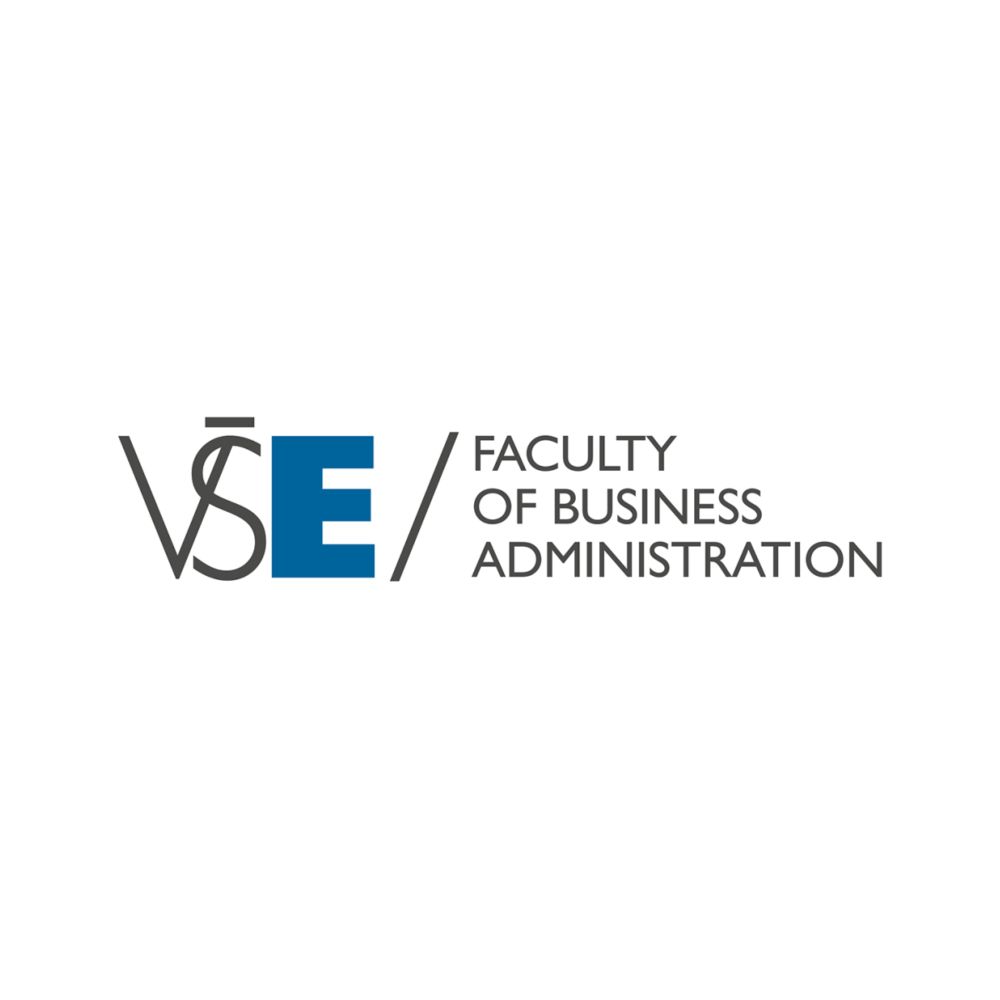
In a new paper with Michael Arntz, we show that larger gifts, monetary gifts, and gifts given in a purely professional relationship are more likely to be perceived as bribes: www.tandfonline.com/doi/full/10....
23.10.2025 19:05 — 👍 1 🔁 0 💬 0 📌 0@bahniks.bsky.social
psychologist interested in judgment & decision making, methodology, programming; associate professor at the Prague University of Economics and Business

In a new paper with Michael Arntz, we show that larger gifts, monetary gifts, and gifts given in a purely professional relationship are more likely to be perceived as bribes: www.tandfonline.com/doi/full/10....
23.10.2025 19:05 — 👍 1 🔁 0 💬 0 📌 0

In a new short conceptual/review paper with @petrhoudek.bsky.social, we describe how groups or organizations can become corrupt due to selection and sorting effects, socialisation, institutional capture, and norm entrenchment: authors.elsevier.com/c/1ltb3,rU~O...
15.10.2025 16:10 — 👍 5 🔁 3 💬 1 📌 0


Selection effects and long-term group processes are often ignored in psychology and we also provide some methodological recommendations. We have other papers that try to take self-selection seriously in studies of cheating. But the idea can be extended to other topics.
15.10.2025 16:11 — 👍 1 🔁 0 💬 0 📌 0
Some commonly proposed interventions might not work in a real-world organization context because of the processes described in the paper.
15.10.2025 16:11 — 👍 0 🔁 0 💬 1 📌 0The proposed model includes a positive feedback loop, meaning that even a slight tendency for, e.g., (self-)selection of dishonest people in an organization can result in fully corrupt organization after some time.
15.10.2025 16:11 — 👍 1 🔁 0 💬 1 📌 0

In a new short conceptual/review paper with @petrhoudek.bsky.social, we describe how groups or organizations can become corrupt due to selection and sorting effects, socialisation, institutional capture, and norm entrenchment: authors.elsevier.com/c/1ltb3,rU~O...
15.10.2025 16:10 — 👍 5 🔁 3 💬 1 📌 0
Never mind that my colleagues are reading and citing the document on PsyArXiv. For this manuscript to count as a legitimate scientific product I must first endure inexplicable delays; arbitrary formatting requirements (the formatting manual costs $47.99); conflicts between my scholarly values and the astronomical profits that private publishing companies make from our taxpayer funded work; introduction of errors into my manuscript by the journal’s proofreaders; websites from hell; and of course peer review. Without that process of publication, my work will remain a ‘preprint’—an incomplete and unreliable artifact unworthy of a place in the scientific literature. Could things be better? I surmise that, like fish unaware of their wet surrounds, academics don’t feel the pain because it’s all they’ve ever known. For one, peer review has nothing to do with commercial journals or publishers—it’s the voluntary labor of our colleagues in service of scientific progress. We could, right now, be reviewing each others work on PREreview or Review Commons. Alas, instead of these scholarly debates we are complacent with pretending that a 40% profit margin industry is somehow facilitating the peer-review process better than the transparent platforms already available to us, for free.
I argue that the time is right for widespread adoption of open review platforms like PREreview (prereview.org) and Review Commons (www.reviewcommons.org) and reject the arbitrary administrative overhead imposed on us by the publication industry.
14.10.2025 09:29 — 👍 9 🔁 2 💬 1 📌 0Nice post from Matti on preprints and the nonsense of journals. This paragraph is outstanding.
14.10.2025 17:40 — 👍 17 🔁 4 💬 1 📌 1
10 years ago?! Holy smokes.
27.08.2025 20:45 — 👍 62 🔁 14 💬 5 📌 2
🪦 New in @pnas.org: we analyzed 38 million U.S. obituaries to ask what signals a life well lived:
What values are people most remembered for?
How do legacies shift with cultural events?
How do age and gender shape what it means to have lived well?
www.pnas.org/doi/10.1073/...

🧌This "bestiary" can be a vital resource for researchers, educators, and reviewers to recognize, understand, and mitigate QRPs, ultimately raising the standard of psychological research. Read the full article here: journals.sagepub.com/doi/10.1177/...
11.07.2025 08:52 — 👍 27 🔁 15 💬 1 📌 0We show that cheaters are willing to pay to be able to cheat even when cheating leads to a loss for a charity.
Honest participants do not overbid the cheaters to prevent the them from harming the charity.
The payment also seems to lead the cheaters to cheat even more to compensate for the costs.

Our new paper on self-selection effects in dishonesty with @petrhoudek.bsky.social, @marekhudik.bsky.social, and Nicolas Say is out now: authors.elsevier.com/a/1lMN67tbfH...
01.07.2025 16:00 — 👍 4 🔁 2 💬 1 📌 0> However, the new study directly tested this explanation and did not find support for it. It does not explain the null effects in other studies well too.
At this point, more replications of fluency effect would be useful to find out on which effects it is possible to build.
> I do not follow the literature closely anymore, but it does not seem to me that there is an accepted explanation why some effects replicate and others do not. One explanation was that the effect requires a comparison of fluency levels. That is, it would work only in within-subject designs. >
13.06.2025 07:05 — 👍 1 🔁 0 💬 1 📌 0
> That does not mean that fluency research is all false. In the paper from the previous post, we for example replicated the association between pronounceability and judgment of novelty. In another paper of mine, more difficult-to-pronounce pseudowords were liked less: bahniks.com/files/disflu... >
13.06.2025 07:01 — 👍 1 🔁 0 💬 1 📌 0
> In our paper, we found that an effect of pronounceability on judgment of harmfulness replicates only with the stimuli used in the original study, but not with newly created stimuli (a blog post about this study: bahniks.com/if-its-easy-... ):
bahniks.com/files/fluenc... >

> A famous effect of font legibility on deliberate processing failed to replicate in Many Labs 2: >
13.06.2025 06:54 — 👍 1 🔁 0 💬 1 📌 0Research on processing fluency used to be very popular with publications in Psychological Science, PNAS, etc. Now there are several prominent failed replications of fluency effects. A newest one: bsky.app/profile/dani... >
13.06.2025 06:52 — 👍 7 🔁 4 💬 1 📌 0
Does ChatGPT help with students' learning performance, learning perception, and higher-order thinking? We re-analyzed a recently published meta-analysis and found that the original conclusion is almost entirely driven by publication bias.
12.05.2025 13:55 — 👍 19 🔁 15 💬 1 📌 2If you were interested in reading more about it, I have two relevant review papers: bahniks.com/files/anchor... and osf.io/preprints/ps...
24.05.2025 20:49 — 👍 2 🔁 0 💬 1 📌 0There are multiple explanations for the anchoring effect. Research suggesting operation of numeric priming largely does not replicate. Selective accessibility model postulates a two-stage process, the second of which is akin to a priming effect and there the evidence is more equivocal.
24.05.2025 20:48 — 👍 2 🔁 0 💬 1 📌 0We wrote about this 10 years ago: bahniks.com/good-things-...
12.04.2025 06:15 — 👍 2 🔁 0 💬 0 📌 0
Submissions for our 2025 ESA European Meeting are now open!
Send your abstract by May 5 and join us in September in Brno
@econmuni.bsky.social More info:👇 esa2025.econ.muni.cz #econtwitter #econsky
🧵Three years ago, when Russia invaded Ukraine, EU, UK and other nations vowed to wage economic war, via the toughest sanctions in history.
So... how's that going?
We've spent months documenting what ACTUALLY happened. Here's a thread of our investigations on the REAL story on sanctions... 👇

Friends, I have written you a book on forensic metascience.
It is free. You can have it. Happy St. Valentine's Day.
If you wish to give me a gift back, you can use it to cause trouble - the greatest gift of all.
open.substack.com/pub/jamescla...

Which findings should we replicate? Isager et al propose a 'replication value', defined as the maximum expected utility gain when conducting a replication. It is a function of (1) the value of being certain about the claim, and (2) uncertainty about the claim. osf.io/preprints/me...
31.01.2025 20:27 — 👍 15 🔁 3 💬 0 📌 0Last week to apply for a postdoctoral position to work with me, @lubomircingl.bsky.social, and @petrhoudek.bsky.social: bsky.app/profile/bahn...
Salary is competitive, position potentially for up to 3 years, projects are interesting, Prague is great to live in, and application process is easy.

We are hiring up to 3 postdoctoral researchers in economics, psychology, or organizational studies to join our interdisciplinary group at the Prague University of Economics and Business: im.vse.cz/cevyz/englis...
13.01.2025 07:43 — 👍 4 🔁 5 💬 0 📌 3
Our department at @umsbe.bsky.social has an opening for a PhD position. The focus is on Marketing but defined broadly.
Please spread the word!
www.academictransfer.com/nl/348321/ph...